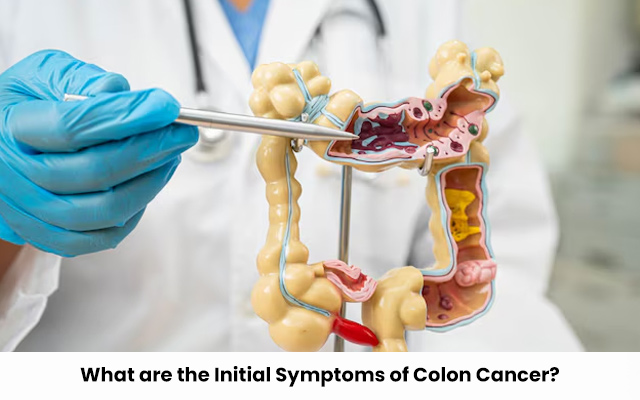Colon cancer, also known as colorectal cancer, begins in the colon or rectum. It often starts with the growth of small, noncancerous polyps on the inner lining of the colon or rectum. If left untreated, these polyps can turn cancerous over time. By recognizing the initial symptoms of colon cancer, your survival rate improves, and the risk of disease progression is reduced.
Initial Symptoms of Colon Cancer
Colon cancer initial symptoms can be subtle initially and may go unnoticed. However, as the disease progresses, more noticeable symptoms can develop. Here are some early signs to watch out for:
- Diarrhea or Constipation: Persistent changes in bowel habits, like prolonged diarrhea or constipation, could signal a problem in the colon.
- Changes in Bowel Movements: A noticeable shift in normal bowel habits, such as narrow or irregular stools, may indicate a blockage or tumor.
- Pain During Bowel Movements: Experiencing discomfort or pain while passing stool can be a symptom of colon cancer.
- Discomfort When Sitting: Rectal pain or discomfort when seated may be a sign of growth in the lower part of the colon or rectum.
- Appetite Changes: A sudden drop in appetite without a clear reason could be an early sign.
- Rectal Bleeding: Blood in the stool or rectal bleeding should not be ignored, as it could be a key indicator.
- Fatigue: Unexplained fatigue or weakness may result from anemia caused by internal bleeding.
- Extreme Weight Loss: Losing weight without effort is often associated with various cancers, including colon cancer.
If you experience any combination of these symptoms over an extended period, consult a doctor for further evaluation.
Causes of Colon Cancer
Like other cancers, colon cancer occurs when cells grow and divide abnormally. In colon cancer, these cells grow at a faster-than-normal rate, forming tumors that can spread if left untreated. Certain factors increase the risk of colon cancer:
- Genetic Factors: Inherited conditions, such as Lynch syndrome or familial adenomatous polyposis, increase the risk.
- Lifestyle Choices:
- Smoking: Smoking increases the likelihood of various cancers, including colon cancer.
- Excessive Alcohol Intake: Drinking heavily raises the risk of developing colon cancer.
- Obesity: People who are overweight or obese are at higher risk.
- High Intake of Red and Processed Meat: Diets high in red and processed meats, like bacon and sausages, are associated with an increased risk.
- Physical Inactivity: A sedentary lifestyle contributes to colon cancer risk.
Medical Conditions Linked to Higher Risk
Certain health conditions may also elevate the risk of colon cancer, including:
- Inflammatory Bowel Disease (IBD): Conditions like Crohn’s disease or ulcerative colitis can lead to long-term inflammation, increasing cancer risk.
- Family History: If you have a close relative with colon cancer, your own risk may be higher.
Conclusion
Early detection is crucial for effective treatment of colon cancer. Awareness of the initial symptoms and understanding of risk factors can lead to timely diagnosis and improved outcomes for your colon cancer treatment in Kolkata. Regular screenings, especially for those with a family history or other risk factors, play an essential role in colon cancer prevention.
Consult the best medical oncologist in Kolkata to learn about treatment options for colon cancer symptoms.

